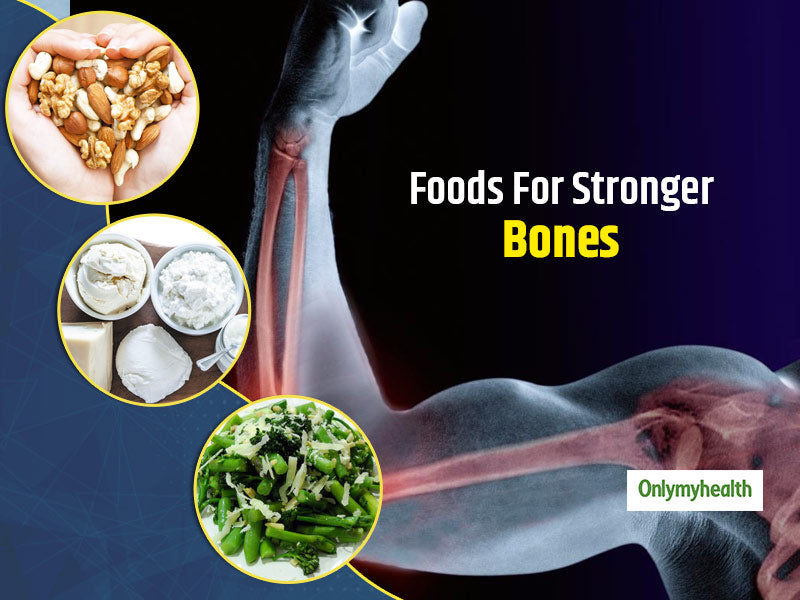5 Foods For Strong Bones And Muscles
March 28 2023 – Nysh Website

Our bones play an important role in supporting our structure, and muscles help in movement. We need to see that these two important parts are maintained and kept healthy so that no health issues occur in the long run. For that, we need to be careful about our diet. Here are some of the best foods for strong bones and muscles, so that you can keep your body as fit as possible.
5 Foods For Strong Bones And Muscles
- Yogurt
- Cheese
- Eggs
- Fish
- Dark Leafy Greens
1. Yogurt
Our body requires the necessary nutrients to function and if it lacks any of these nutrients, we might see the doctor more often than usual. Yogurt is one such type of food that is highly nutritional and one that promotes bone and muscle health.
Yogurt is known to be an excellent source of calcium which is a nutrient responsible for maintaining healthy bones and teeth. According to data by Healthline, one cup of yogurt satisfies 49% of your calcium requirement.
In addition to calcium, other important nutrients that promote bone health are potassium, magnesium, and phosphorus. Potassium ensures that your bones don’t decay, magnesium contributes to bone density, and phosphorus promotes bone growth, all of which are present in yogurt.
When it comes to strengthening muscles, yogurt is a great source of protein. Proteins are responsible for muscle growth, increased metabolism, and the development of muscle mass. However, greek yogurt (a thicker variant of yogurt) has a higher content of protein and amino acids as compared to normal yogurt and it can be easily incorporated into snacks. Lastly, yogurt also enhances muscle repair, making it a healthy snack to have after a workout.
2. Cheese
Cheese is another great source of calcium and one of the best foods for strong bones and muscles. This dairy product contains magnesium, zinc, and vitamins A, D, and K which facilitate healthy bone development and help to prevent osteoporosis, a condition where bones become brittle due to loss of tissue.
If you want to get specific, a study conducted by researcher Barbara Pampaloni concluded that parmesan cheese has a high calcium and protein content that can help prevent osteoporosis. The calcium present in parmesan cheese has a high bioavailability, meaning it can be absorbed faster by the system. When the protein (casein) is digested, it leaves back residual matter that helps the bones to absorb zinc, iron, and calcium.
Cheese can be a good addition to your protein diet as well. Amino acids form proteins which are the fundamental building blocks of muscle tissue. If you’re keen on bodybuilding, you should know that whey protein, the same protein used in muscle-building products, is present in abundance in cheese. Include ricotta cheese in your food as it’s a better source of whey protein than other types of cheese.
3. Eggs
Our body uses proteins to strengthen muscles so that we remain physically fit. But while doing intense physical workouts, the muscle fibers present begin to tear down. And to repair them, we need to replenish those lost proteins by having more of them. For that, eggs are an egg-cellent source of protein and other minerals to promote muscle growth and repair.
You’ll find the yolk and albumen of the egg having the essential amino acids which are needed for muscle recovery and protein synthesis. Our cells produce protein through the process of protein synthesis after any strenuous activity and eggs help in fueling the process. These power packed sources of protein also have a good amount of healthy fat that helps with muscle gain.
Apart from your muscles, eggs contribute to good bone health too. Vitamin D is present in the yolk which helps in calcium absorption and prevents bones from decaying, playing a vital role in preventing osteoporosis too.
4. Fish
If you haven't included fish in your diet, then it’s high time to start doing so. Fish contains a high volume of nutrients and minerals that help in building muscle. Furthermore, it contains lean proteins, a type of protein that’s low in saturated fats and calories. Another benefit of including fish in your diet is that it helps in strengthening bones too.
Fish contains omega-3 fatty acids that help boost protein synthesis and relieve muscle soreness, especially after a workout. That’s why it’s important to include a portion of fish in your plate so that you don’t miss out on these nutrients. With regard to bone health, fish contains a good level of calcium and vitamin D as well. Include fishes such as sardines, mackerels, and salmon since they’re rich in calcium and omega-3.
5. Dark Leafy Greens
You might’ve squirmed at the idea of having green leafy vegetables on your plate, but you don’t know how much nourishment you’re missing out on. Some leafy vegetables such as spinach, kale, and turnip greens are rich in magnesium. This nutrient helps in the absorption of calcium which helps in promoting better bone health.
Vitamin K, the nutrient that helps to build your bones, is also present in some leafy vegetables such as asparagus, broccoli, and Brussels sprouts. This also helps in fighting osteoporosis.
On the other hand, greens help to develop better muscle strength too. Leafy vegetables contain nitrates, which when consumed, get converted to nitrate oxide. Nitrate oxide helps to relax blood vessels and causes more oxygen to be delivered to the blood muscles. This increased delivery of oxygen helps our muscles function properly, ultimately leading to enhanced muscle strength.
Summing Up
These are some of the best foods for strong bones and muscles. Remember to include all of our suggestions in your diet so that you stay healthy and fit. But most of all, don’t forget to exercise as diet and exercise work in tandem.
FAQs
How Can I Make My Bones And Muscles Stronger?
You can make your bones and muscles stronger by including calcium and protein-rich foods such as fish, eggs, and yogurt in your diet. Also, you can take part in physical activities such as walking, running, and climbing so that your body is exercised and develops strength.
Which Vegetable Has The Most Calcium?
Kale, collard greens, and spinach are leafy green vegetables with good sources of calcium. Along with calcium, these vegetables contain a range of vitamins as well such as vitamin C, vitamin K, and vitamin A.
What Are The Signs You Need Vitamin D?
If you lack vitamin D, you’ll experience symptoms such as:
- Fatigue
- Bone pain
- Hair loss
- Muscle weakness


0 comments